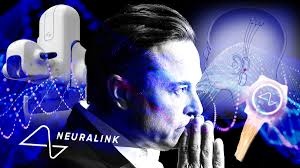Musk's Neuralink to implant chip to restore vision this year
Musk's Neuralink to implant chip to restore vision this year

Neuralink, Elon Musk's neurotechnology company founded in 2016, is pioneering the development of implantable brain–machine interfaces (BMIs) aimed at treating neurological conditions and enhancing human capabilities. The company has made significant strides in both human and animal studies, focusing on applications such as vision restoration and motor function improvement.
Recent Developments:
-
Blindsight Implant: Neuralink has developed an experimental device named Blindsight, designed to restore vision in individuals who are blind due to damage to the optic nerve, provided their visual cortex remains intact. In September 2024, the U.S. Food and Drug Administration (FDA) granted Blindsight Breakthrough Device Designation, expediting its development and review process. Elon Musk announced plans to implant the Blindsight chip in a human by the end of 2025, aiming to enable vision in patients who have lost both eyes and their optic nerve.
-
Human Clinical Trials: Neuralink has progressed to human clinical trials, implanting its N1 chip in patients with paralysis. These implants allow users to control computers and other devices using thought alone. For example, a patient with a spinal cord injury has used the implant to play video games and design 3D objects. As of early 2025, Neuralink has implanted devices in three individuals, with plans to extend this to 20–30 more patients within the year.
-
Trademark Applications: In March 2025, Neuralink filed applications with the U.S. Patent and Trademark Office to trademark terms such as "Telepathy," "Telekinesis," and "Blindsight." These filings suggest the company's intent to develop technologies enabling mind-controlled communication and device operation, aligning with its vision of merging human cognition with artificial intelligence.
Ethical and Regulatory Considerations:
Neuralink's research has faced scrutiny regarding animal welfare. Investigations have revealed instances of animal suffering and death during trials, leading to calls for greater transparency and ethical oversight. In response, Neuralink has stated its commitment to improving the safety and efficacy of its devices. Regulatory bodies continue to monitor the company's progress to ensure compliance with ethical standards.
Looking Ahead:
As Neuralink advances its technologies, it aims to address various neurological conditions, including blindness and paralysis, potentially transforming the lives of individuals with disabilities. However, the company must navigate complex ethical, regulatory, and technical challenges to realize its ambitious goals responsibly.

















